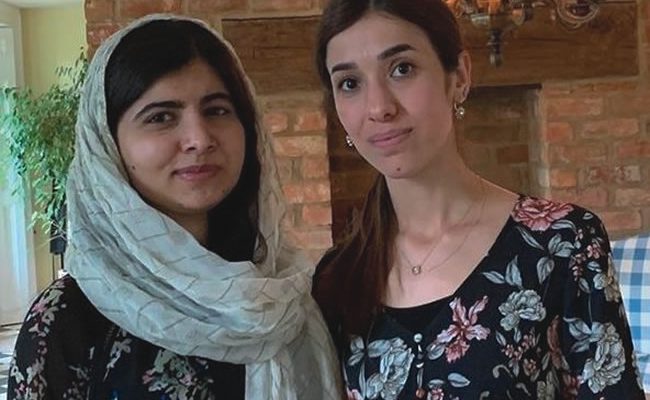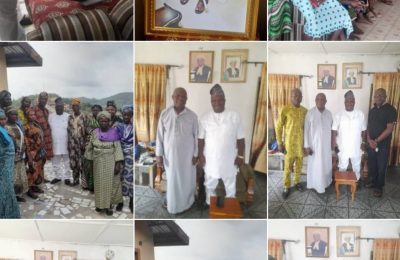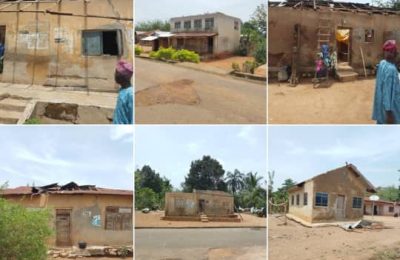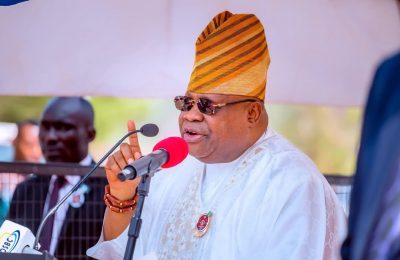
On Friday, the Norwegian Nobel Committee awarded the Japanese organisation Nihon Hidankyo the 2024 Nobel Peace Prize “for its efforts to achieve a world free of nuclear weapons and for demonstrating through witness testimony that nuclear weapons must never be used again.”
Coincidentally, Friday was the 2024 International Day of the Girl, with the theme ‘Girls’ vision for the future’.

The two youngest people — who happen to be females — to have been awarded the Nobel Peace Prize are 27-year-old Malala Yousafzai (in 2014, at age 17) and 31-year-old Nadia Murad Basee Taha (in 2018, at age 25).
Since 1901, according to the Noble Prize, of the 111 individuals awarded the Nobel Peace Prize, 19 are women. The youngest man to receive the Peace Prize was Dr Martin Luther King, Jr., in 1964 at age 35, for “his non-violent struggle for civil rights for the Afro-American population.”
These statistics will enable the Nigerian girl-child to understand the significance and magnitude of the feats of Malala and Nadia.
According to the United Nations (UN), this year’s theme of the International Day of the Girl “conveys both the need for urgent action and persistent hope, driven by the power of girls’ voices and vision for the future.”
The UN further stated that today’s generation of girls is disproportionately affected by global crises of climate, conflict, poverty and pushback on hard-won gains for human rights and gender equality.
These sad narratives, and probably more, were the fate of Malala and Nadia when they were growing up in their countries.
Malala Yousafzai was schooled in Pakistan when girls’ education and cultural activities like dancing and watching television were banned by the Taliban, who were bombing hundreds of schools, especially schools where girls were being taught.
During these times, Malala wrote many articles against the activities of the Taliban and encouraged her fellow girls to continue their education. Between ages 12 and 15, her work and publication in international newspapers were noticed by many people across the world, including prominent world leaders.
On 9 October 2012, at age 15, a Taliban gunman shot her as she rode home from school because of her writings and advocacy against the Taliban extremism.
Malala — co-founder of the Malala Fund and co-author of ‘I Am Malala: The Girl Who Stood Up for Education and Was Shot by the Taliban’ — was awarded the Nobel Peace Prize in 2014, which she shared with Indian children’s rights activist Kailash Satyarthi “for their struggle against the suppression of children and young people and for the right of all children to education.”
In 2014 — the same year Malala was awarded the Nobel Peace Prize — as part of the Yazidi genocide in Iraq by the Islamic State, 21-year-old Nadia Murad was abducted from her hometown of Kocho in Iraq, where much of her community and family were massacred, and held as an Islamic State sex slave for three months, alongside thousands of other Yazidi women and girls.
Murad was bought and sold several times, and her first attempt at escaping resulted in a gang rape as punishment. One day, however, she discovered that a door had been left unlocked, and she fled. According to her Nobel Prize profile, “By recounting the atrocities perpetrated against her, she seeks to help ensure that future generations of girls and young women do not become victims of sexual violence in war.”
Nadia — author of ‘The Last Girl: My Story of Captivity, and My Fight Against the Islamic State’ and founder of Nadia’s Initiative — was awarded the Nobel Peace Prize in 2018, which she shared with Democratic Republic of the Congo gynaecologist Denis Mukwege “for their efforts to end the use of sexual violence as a weapon of war and armed conflict.
The Nigerian girl-child, on a daily basis, faces similar challenges and abuse that Malala and Nadia faced as young girls. The family, society, and the government, in most cases, either contribute to this abuse or do not care about her and her future.
Malala and Nadia, when facing their personal and societal challenges, knew that seldom would anyone save them but themselves. So, they decided to visualise a future for themselves, a future where they were in control, and where peace and justice mattered.
The Nigerian girl-child needs to emulate the passion and drive of Malala and Nadia, even when no one seems to believe in her or her future. She should envision a future where she could surpass Malala’s and Nadia’s feats and win more than a Nobel Peace Prize or any other categories of the Nobel Prize.
These charging words from the UN about the theme ‘Girls’ vision for the future’, should be her drive: “With the right support, resources and opportunities, the potential of the world’s more than 1.1 billion girls is limitless. And when girls lead, the impact is immediate and wide-reaching: families, communities and economies are all stronger, our future brighter.”
READ ALSO: Police confirm Oloba Salo hospitalised after gun attack in Lagos







